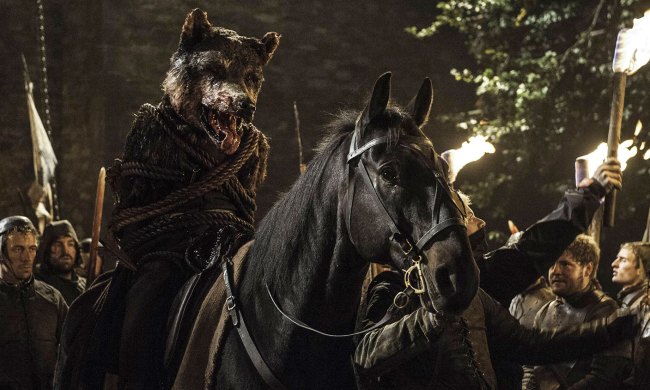Before we start, a warning: Spoilers for Game of Thrones follow.
One of the things that made HBO’s Game of Thrones so exciting was its collection of grisly and unpredictable death scenes, during which any main character could seemingly die at any time (even if they didn’t always stay that way). From Ned Stark to Jon Snow to the Mother of Dragons herself, no one was safe.
The show’s writers knew it, too, and they used Game of Thrones‘ reputation for a high body count to play cruel pranks on its leading men and women. Occasionally, the writers would give actors fake scripts in which their characters died in fake, super-lame ways.
The news comes via the YouTube series Hot Ones, which recently had Game of Thrones star Maisie Williams on as a guest. As per Hot Ones tradition, Williams, who played Arya Stark on all eight seasons of HBO’s hit fantasy series, munched on a series of increasingly spicy hot wings while spilling many of Game of Thrones‘ secrets.
At one point, Williams told Hot Ones host Sean Evans that the Game of Thrones writers handed Alfie Allen, who played Theon Greyjoy, a scene in which he was killed by Isaac Isaac Hempstead Wright’s Bran Stark in “a really anticlimactic way.” The prank only came to light after Allen texted Hempstead Wright to talk about the scene, leaving the latter extremely confused.
In another instance, the Game of Thrones writers told Kit Harrington, aka Jon Snow, that he was going to be “aggressively mauled,” and would have to spend the rest of the series with “a huge disfigurement on his beautiful, chiseled jaw.”
Williams also confirmed a number of long-running rumors surrounding the show, including the fact that she taught herself to swordfight left-handed in order to stay true to George R. R. Martins’ books, and that she almost skipped her audition for Arya to visit a pig farm. “Just really wanted to go on that school trip,” Williams said, but admitted that it all worked out in the end. “You wouldn’t have wanted me on the show if I had gone to that pig farm,” she said.
Game of Thrones wrapped up its eight-season run with a highly controversial (although maybe not quite as controversial as you think) finale last spring, although HBO isn’t ready to say goodbye to the franchise quite yet. Two Game of Thrones prequel series are in development at HBO, with the possibility of more coming down the line.


